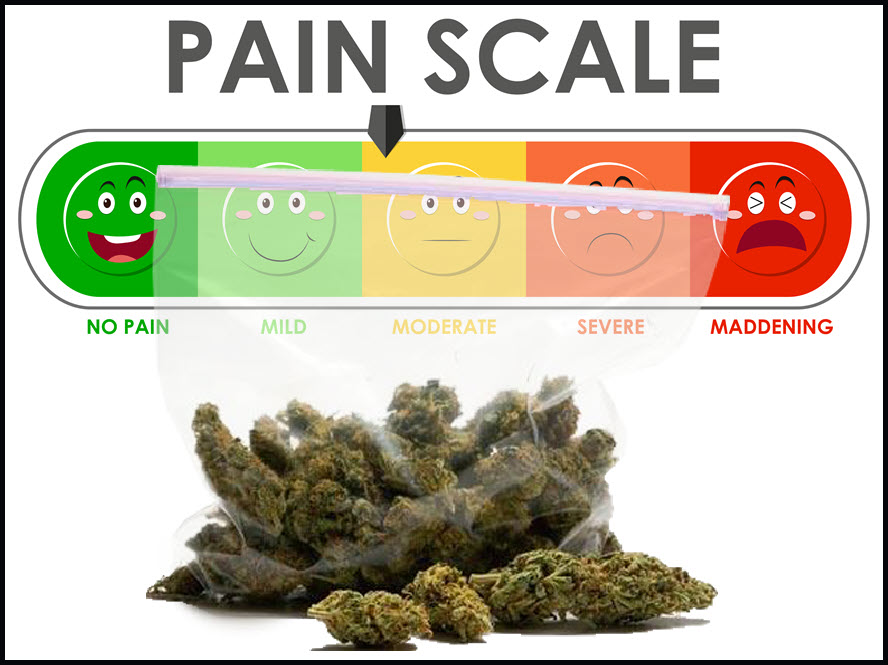
Want pain relief without getting high? CBD may show just as much promise as THC for treating pain, new studies say
Pain Relief From Cannabis Without The High? Studies show that CBD shows just as much promise as THC for treating pain
With around 50 million adults living with chronic pain, pain has become one of the most feared medical conditions. And that’s not even counting the millions of other people around the world who are struggling with various types of pain: pain in joints, chest, back, nerves, tissue damage and more can affect anyone.
But whether it’s acute or chronic pain, caused by a damaged joint or a long-term illness, it’s always uncomfortable. If it goes on for too long, it can take away everyone’s quality of life and turn even the most mundane of everyday tasks into serious challenges. However, we cannot rely on pharmaceutical solutions to treat pain; The opioid epidemic has left thousands dead due to its deadly and addictive effects, while over-the-counter drugs also have their own side effects.
Luckily, different parts of the cannabis plant have proven beneficial in treating pain.
For many years, the studies (and anecdotal evidence) on the effectiveness of tetrahydrocannabinol (THC) products have been in the spotlight for their powerful analgesic properties. THC is perhaps best known as the psychoactive compound in the marijuana plant. Countless patients have found relief from a variety of pain conditions thanks to THC, which can be smoked, vaporized, eaten, or used as an oil. But besides the pain relief, patients also experience its psychoactive effects. While some don’t mind getting high in order to take medication, there are simply those who prefer not to get high – and therefore balk at using cannabis as a pain reliever.
However, there is a growing body of studies showing that cannabidiol (CBD), the non-psychoactive compound in the plant, can work just as well as THC in treating pain. CBD will not get you high; In fact, it is relaxing but has powerful anti-inflammatory properties that can target pain at its root.
What the studies say
One of the most recent studies on this topic was conducted by researchers from the Department of Orthopedic Surgery at NYU Grossman School of Medicine. They tested ORAVEXX, a pill containing CBD, on patients after they had minimally invasive rotator cuff surgery. The capsule is a buccally absorbed tab developed by Orcosa, Inc., a life sciences company.
“On the first day after surgery, patients who received CBD had an average of 23 percent less pain as measured by the Visual Analogue Scale (VAS) Pain Score compared to patients who received the placebo, highlighting that in patients with moderate pain, CBD has a can have a significant impact,” they wrote.
“On both the first and second days after surgery, patients who received CBD reported 22 to 25 percent greater satisfaction with pain control compared to those who received placebo. Further analysis also showed that patients receiving 50mg of CBD reported less pain and greater satisfaction with pain control compared to patients receiving placebo. No major side effects were reported,” the analysis said.
“There is an urgent need for viable pain management alternatives, and our study presents this form of CBD as a promising tool following arthroscopic rotator cuff repair,” said Michael J. Alaia, MD, principal investigator on the study and associate professor in the Department of Medicine Orthopedic Surgery. “It could be a new, low-cost approach to pain relief without the side effects of anti-inflammatory drugs like NSAIDs and the risks of addiction associated with opiates. Additionally, CBD has the benefit of pain relief without the psychotropic effects associated with THC or marijuana,” he said.
In 2021, a survey of patients undergoing spinal surgery in New York found that 1 in 4 patients used CBD to relieve their symptoms. 46% of respondents said CBD was effective for pain relief, while 33% said it helped with sleep issues, and 20% said they felt less anxiety. “This is, to our knowledge, the first study to examine consumption patterns and perceived effects of CBD in patients with spinal pathology,” the authors said. “This research shows that CBD is a widely used alternative therapy used by many patients with spinal symptoms. As the dietary supplement’s popularity is expected to continue to increase over time, spine surgeons need to educate themselves about the evidence behind CBD’s use, understand its legal status, and be aware of the potential for mislabeling of ingredients,” they cautioned.
Also in 2021, a study found that CBD was effective in treating migraine pain. Individuals struggling with migraine pain find it difficult to treat these conditions; often the pain can be severe enough to cause vomiting and nausea, as well as increased sensitivity to light and sound.
The 2021 study involved sending out a survey to customers using Axon Relief’s CBD oil, which was specifically formulated to treat migraine pain. The clinically validated survey analyzed the impact of headaches on participants’ daily lives and ability to function. Respondents were asked to complete the survey before and after consuming the CBD oil they took for 30 days. They reported 3.8 fewer headaches compared to before they consumed Axon’s CBD oil, while those with chronic migraines experienced 33% fewer headaches.
Conclusion
Pain patients today have more options than ever when it comes to treating acute and chronic pain conditions. The studies on cannabidiol are certainly promising to say the least and offer an excellent alternative for patients who don’t want to get high while treating pain of many kinds.
FIGHT FOR PAIN RELIEF, READ MORE…

WHICH IS BETTER FOR PAIN RELIEF, CBD OR THC? READ THIS!

Post a comment: